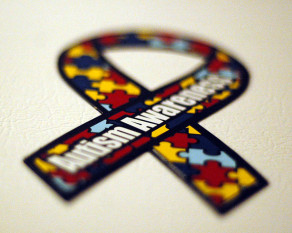 Photo source: Flickr
Photo source: Flickr In Singapore, a highly developed, first-world country, autism awareness and educational support may be sorely lacking.
Over lunch today at the International Meeting for Autism Research in Atlanta, I sat next to Lela Iuorno from Singapore. Her eight-year-old son, Luca, has autism. Iuorno is at IMFAR hoping to learn more about available pharmacological and behavioral interventions for her son. She is particularly invested in autism research, as she is not only Luca’s parent but also his behavioral aide in school.
Behavioral aides, referred to as “shadow support” in Singapore, are not typically available in the school systems in Singapore. In fact, Iuorno has spent a lot of time trying to convince public schools in Singapore to provide access to behavioral aides in the classroom.
“It’s a lot of fighting,” she said. When Luca had attended three different schools before he finished preschool, Iuorno decided to take the reigns herself. She now attends school alongside Luca 5 days a week, providing the assistance he needs to stay focused during his classes. She works nights and weekends to offset the lost income she would have if she wasn’t serving as Luca’s aide. She’s constantly working to do what’s best for her son, she said.
“I feel like a one woman army,” she said.
Another obstacle Iuorno has encountered in Singapore is a lack of understanding amongst teachers and students about what autism actually is. There is a common misconception that autism is a temporary condition. Teachers have told Iuorno that when Luca “gets better” his experience at school will improve.
Additionally, students like Luca who have autism but do not display obvious behavioral symptoms, such as outbursts, are assumed to be fine. Thus, their individual barriers to learning are largely ignored.
“These children can’t survive [in public schools],” she said. Yet, there are few private special education schools in Singapore, and, of the ones that exist, getting in is difficult.
Despite its developed status, Singapore lacks well-organized special education systems for autism, in which trained behavioral aides are available. But, more importantly, Iuorno believes Singapore is in need of accurate awareness about autism and its heterogeneous symptoms. This unawareness is hurting the education of children like Luca.
“It’s true and it’s sad,” Iuorno said.
[This post was originally published at my previous blog, Neurolore.]
Over lunch today at the International Meeting for Autism Research in Atlanta, I sat next to Lela Iuorno from Singapore. Her eight-year-old son, Luca, has autism. Iuorno is at IMFAR hoping to learn more about available pharmacological and behavioral interventions for her son. She is particularly invested in autism research, as she is not only Luca’s parent but also his behavioral aide in school.
Behavioral aides, referred to as “shadow support” in Singapore, are not typically available in the school systems in Singapore. In fact, Iuorno has spent a lot of time trying to convince public schools in Singapore to provide access to behavioral aides in the classroom.
“It’s a lot of fighting,” she said. When Luca had attended three different schools before he finished preschool, Iuorno decided to take the reigns herself. She now attends school alongside Luca 5 days a week, providing the assistance he needs to stay focused during his classes. She works nights and weekends to offset the lost income she would have if she wasn’t serving as Luca’s aide. She’s constantly working to do what’s best for her son, she said.
“I feel like a one woman army,” she said.
Another obstacle Iuorno has encountered in Singapore is a lack of understanding amongst teachers and students about what autism actually is. There is a common misconception that autism is a temporary condition. Teachers have told Iuorno that when Luca “gets better” his experience at school will improve.
Additionally, students like Luca who have autism but do not display obvious behavioral symptoms, such as outbursts, are assumed to be fine. Thus, their individual barriers to learning are largely ignored.
“These children can’t survive [in public schools],” she said. Yet, there are few private special education schools in Singapore, and, of the ones that exist, getting in is difficult.
Despite its developed status, Singapore lacks well-organized special education systems for autism, in which trained behavioral aides are available. But, more importantly, Iuorno believes Singapore is in need of accurate awareness about autism and its heterogeneous symptoms. This unawareness is hurting the education of children like Luca.
“It’s true and it’s sad,” Iuorno said.
[This post was originally published at my previous blog, Neurolore.]